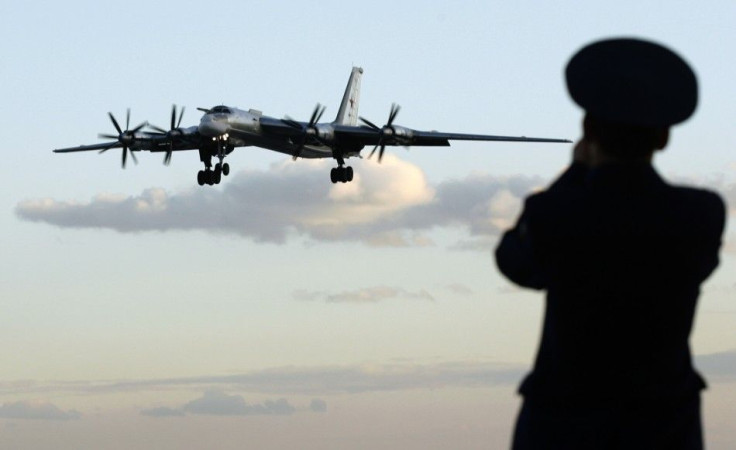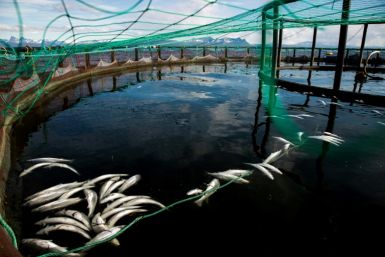NATO: Russia's Been Conducting Too Many Military Flights Over Europe

Russia's been particularly busy flying over the international airspace of other European countries, the North Atlantic Treaty Organization, commonly known as NATO, said on Wednesday.
In a statement on its Web site, NATO said it observed an "unusual" spike of four groups of military aircraft conducting "significant" military manoeuvres in European airspace. The aircraft were identified as Russian property. NATO said their movements were tracked over the Baltic Sea, North Sea/Atlantic Ocean and Black Sea on October 28 and 29. The Russian aircraft totalled at least 19, NATO said, noting the sizable number "represent an unusual level of air activity over European airspace."
At least eight Russian aircraft flew over the North Sea on Wednesday. Six turned back while the other two continued to the Atlantic Ocean. The Norwegian air force immediately scrambled F-16s to respond to the six aircraft seen flying in formation, while the United Kingdom's military aircraft responded to the other two. Also on Wednesday, the Turkish air force intercepted four Russian aircraft in international airspace over the Black Sea, including two Tupolev Tu-95 Bear-H bombers and two Sukhoi Su-27 Flanker fighter jets. Several Russian planes were also detected over the Baltic Sea. Aircraft fighters from Portugal were assembled to respond.
Officials said civilian air traffic control officials did not receive flight plans from the Russian aircraft that flew over the North Sea and Atlantic Ocean. Nor did they initiate radio communication, thus risking civilian flights.
Chris Chivvis, a political researcher with the Rand Corp., quoted by portal USNews, believed the surge in Russia's air incursions over the territories of other European nations is "an effort to demonstrate resolve regarding other parts of Europe." Albeit Russia's recent relative peace with Ukraine, the air flights send a totally different message because "it's moving in the wrong direction," an unidentified U.S. defence official told Washington Post.
On Thursday in Berlin, German Chancellor Angela Merkel told reporters the seeming growing number of Russian aircraft zoning onto European airspace is still not a cause of major concern.
"Over the past few months, I have been seeing more intense activity when it comes to Russian armed forces. But at this point, I am not worried that there is major violation of our airspace," Ms Merkel said.
According to NATO, Russia has conducted three times the number of such flights this year compared from 2013. This year alone, it said it had intercepted over 100 Russian aircraft.





